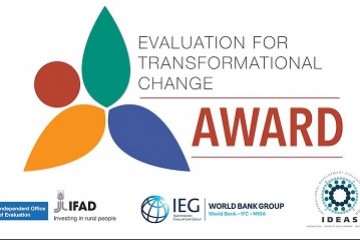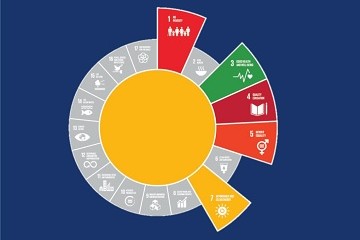Towards a sustainable Energy Union
On 25 February the European Commission published the long awaited package on the Energy Union. The package contains a large number of steps towards increased energy security, completion of the internal energy market, increased energy efficiency and decarbonisation of the economy.
This is an ambitious package with many topics that are all closely related to each other and which include sensitive national issues. The ambitions are clear and challenging, making Europe stronger and more sustainable. But there is a lot at stake and discussions between the Commission and Member States for the adoption of the package will not be easy. Will the actions be implemented soon enough and at a sufficiently firm level? Or will national and economic arguments prevail over sustainability and climate action, resulting in delays and watered down ambitions?
Five priority issues
To keep momentum and actually deliver a resilient Energy Union, the Commission will need to focus and prioritize. In this article we highlight five key issues that, in our view, should have priority in the realisation of the Energy Union.
- Improved interconnectivity
- Electricity storage
- Electrification of transport
- Shifting role of biomass
- Energy efficiency: enabling financing
1. Improved interconnectivity
| Interconnectivity | |
| increased energy security | ++ |
| integrated energy market | +++ |
| increased energy efficiency | 0 |
| decarbonisation of the economy | ++ |
(+++ = essential; ++ = important: + = positive impact; 0 = no direct impact)
The Commission clearly points out that completion of the Energy Union requires a fundamental transformation of Europe's energy system. The growing share of renewable electricity is improving the sustainability of the overall European system, but its system adequacy also needs to be maintained and where possible improved. A higher rate of interconnectivity will lower the costs of renewable energy integration, facilitate the completion of the internal energy market and will provide the necessary flexibility to the European energy system.
Achieving the 10% - 15% targets in interconnection (as included in the package) for instance between France and Spain would change the electricity markets in both countries. It will optimize the use of renewable energy capacity in Spain by making it available to France and vice versa, making surplus nuclear energy (without CO2) available to Spain.
Interconnectivity receives a lot of attention in the Energy Union package, but the physical expansion of the network should go hand in hand with further integration of balancing markets and improved regulation to facilitate operation of power markets at supranational European level.
2. Electricity storage
| Interconnectivity | |
| increased energy security | ++ |
| integrated energy market | ++ |
| increased energy efficiency | + |
| decarbonisation of the economy | ++ |
(+++ = essential; ++ = important: + = positive impact; 0 = no direct impact)
The starting point for the fundamental transformation of Europe's energy system should be the production and use of decentralised energy. Electricity storage, demand side measures and energy efficiency measures are the essential ‘enablers’ to scale-up decentralised energy. Ideally, electricity storage would be implemented at different levels (consumer, local and regional levels) and at each level would offer opportunities to create less dependency from external sources.
Storage can take many forms: in batteries and electric vehicles at consumer level, in container size batteries as back up for power plants, as elevated artificial lakes where water is pumped in time of surplus supply from renewables. In combination with the development of smart grids, energy efficiency and demand side measures, electricity storage also has the potential to make (fossil fuel based) capacity remuneration mechanisms redundant.
Electricity storage is mentioned a few times in the package as being important, but our suggestion is to strengthen Europe’s role in the uptake of energy storage. This could be done by setting a mandatory share of energy storage, for example as part of the ‘near zero’ energy use obligation for new buildings or for large-scale renewable energy projects.
3. Electrification of transport
| Interconnectivity | |
| increased energy security | +++ |
| integrated energy market | + |
| increased energy efficiency | ++ |
| decarbonisation of the economy | ++ |
(+++ = essential; ++ = important: + = positive impact; 0 = no direct impact)
With the right incentives, electrification of transport is expected to become mainstream. In the next 10-20 years, a rapid transition to hybrid and electric road transport may be expected. Current policies to decarbonise transport, however, mostly focus on the use of conventional biofuels, and consequently will need to be adapted to the upcoming, new reality.
Electrification of transport will reduce Europe’s import dependency and thus increase energy security. It will also bring along a significant volume of electricity storage. This will help system balancing and may avoid less sustainable alternatives such as proposed capacity remuneration mechanisms.
The effect of electrification of transport on decarbonisation depends on the national electricity fuel mix of each Member State, but with a further decarbonisation of the European power sector, the shift towards electrification will significantly lower Europe’s carbon emissions from the transport sector.
It is important to note that electrification of transport will bring a large part of the emissions related to transport under the ETS, helping to boost the CO2 price to a level that matters.
Europe could play a stronger role to accelerate the transition towards electric mobility, for instance by: i) daring to set a target for the uptake of electric mobility, ii) explicitly include the effects of electrification in the organisation of electricity markets, and iii) adapting building regulations to include electric car charging facilities in all new and renovated buildings. With the size, number of jobs, and economic importance of the European automotive industry, there is also a strong motive to accelerate the implementation of electric mobility.
4. Shifting role of biofuels/biomass
| Interconnectivity | |
| increased energy security | ++ |
| integrated energy market | 0 |
| increased energy efficiency | 0 |
| decarbonisation of the economy | ++ |
(+++ = essential; ++ = important: + = positive impact; 0 = no direct impact)
Increased use of biofuels and biomass strengthens energy security as it reduces dependency on imported fossil fuels. The expected electrification of the road transport sector, together with the increasing levels of energy efficiency in new car engines, will result in reduction of future demand for biofuels. Instead, future demand for biofuels will come from other sectors, where electrification today does not seem a viable option, such as heavy cargo road transport, aviation and cargo shipping. For the Energy Union to deliver it should provide incentives for the use of biofuels in these sectors as a long-term effective strategy to reduce their emissions.
Moreover, the Energy Union should dare to make a step forward on the promotion of advanced biofuels. Contrary to conventional biofuels, advanced biofuels can achieve higher CO2 reductions without being in conflict with food security
From a cascading value perspective, other emerging options, such as biochemicals, have higher economic and sustainability value than the current use of biomass for energy.
Europe can move towards this transition, with measures that take into account the economic impact on investments done in conventional biofuel production capacity, for example, by setting a clear cap and timeframe to phase out conventional biofuels towards 2030. At the same time a minimum target for more advanced biofuels should be adopted, preferable a flexible target that considers the existing large differences in national ambitions and possibilities towards advanced biofuels.
5. Enabling financing of energy efficiency
| Interconnectivity | |
| increased energy security |
+ |
| integrated energy market | 0 |
| increased energy efficiency | +++ |
| decarbonisation of the economy | ++ |
(+++ = essential; ++ = important: + = positive impact; 0 = no direct impact)
The Energy Union packages states that 75% of our housing stock is energy inefficient. A huge potential for energy efficiency improvement in the built environment exists, which is not unlocked. A lack of private financing is often said to be the primary bottleneck to the uptake of energy efficiency in the built environment, but we believe that it is rather a lack of investor confidence.
The renewable energy market has taught us that private financers are hesitant to enter new markets without a clear view on its risks, its economic value and the required procedures to successfully bring the projects to the market. These issues are even more applicable to the market of energy efficiency, since the opportunities are extremely diverse and therewith transparency and investor confidence are difficult to obtain. Standardisation of contracts, procedures, monitoring and verification protocols, and a clear classification of buildings and saving options of technical measures are needed to bring such confidence.
The Energy Union can enable such standardisation and help to let investments materialize and at the same time realise many local jobs, throughout Europe.
Towards a sustainable Energy Union.
A final key element to mention is the importance of a strong emissions trading system (ETS). Putting a price on CO2 is a prerequisite for internalising costs of climate change into economic decisions. An adequate CO2 price and could be the driving force to increase the energy efficiency and decarbonisation of the European economy. The Energy Union will require not only bold actions like the ones suggested in this article, but also compromise from Member States to succeed. Combined with a strong ETS, these are decisive steps to achieve a low carbon economy throughout Europe.
This newsletter is based on recent work conducted by SQ Consult; more information on these studies is available at request. The author thanks Monique Voogt and Sergio Ugarte for their valuable contribution to writing this article.




